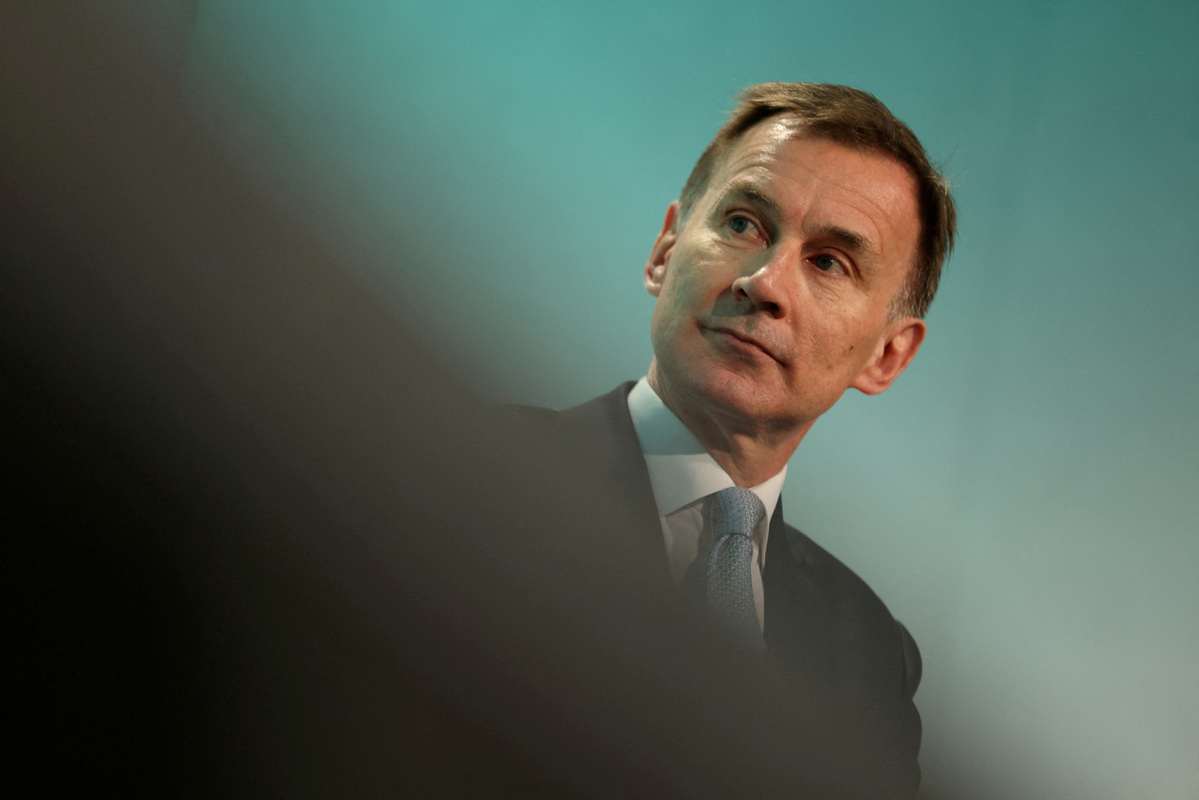IMF warns UK against more tax cuts


The International Monetary Fund, or IMF, has warned the United Kingdom's Chancellor of the Exchequer Jeremy Hunt against cutting taxes in his spring budget, which is to be unveiled on March 6, saying public spending should be a bigger priority.
The budget is always delivered in March, but this is the earliest date in the month that has been picked in the 14 years that the Conservative Party has been in power, a choice that has fueled speculation that British Prime Minister Rishi Sunak may call a general election earlier in the year than previously suggested.
The IMF's latest global economic outlook says the world economy is "(beginning) the final descent toward a soft landing, with inflation declining steadily and growth holding up", but, as more turbulence may lie ahead, caution is still urged.
"Preserving high-quality public services and undertaking critical public investments to boost growth and achieve the net-zero targets, will imply higher spending needs over the medium term than are currently reflected in the (UK) government's budget plans," said an IMF spokesperson. "Accommodating these needs, while assuredly stabilizing the debt/GDP ratio, will already require generating additional high-quality fiscal savings, including on the tax side."
But Hunt disagreed, saying: "It is too early to know whether further reductions in tax will be affordable in the budget, but we continue to believe that smart tax reductions can make a big difference in boosting growth."
In January, Hunt told ITV News: "I would like to reduce the tax burden, because I look at the numbers around the world, I see that places like America that have lower taxes, have more dynamic economies and grow faster. And that's what I would like us to be."
However, The Times newspaper reports that Hunt has told Cabinet colleagues "major structural weaknesses" in the economy mean any cuts will have to be smaller than those announced in his fall statement, which included a national insurance contribution reduction that has just come into effect.
"We are not likely to have as much room for tax cuts as we had in the autumn," he reportedly said.
In November, despite those announced national insurance cuts, the Office for Budget Responsibility said the UK still faces the biggest fall in real living standards since records began in the 1950s, and that in 2024/25, they were forecast to still be 3.5 percent lower than pre-pandemic levels.
Unexpectedly high levels of growth in 2023 in several major economies, including China, were one of the reasons the IMF revised its growth estimates for the year ahead, with its chief, Pierre-Olivier Gourinchas, observing that "the clouds are beginning to part".
The comments came at the same time as the IMF predicted the UK economy will expand by just 0.6 percent in 2024, only a marginal increase on last year's 0.5 percent and the second-slowest among G7 members, behind Germany.

































